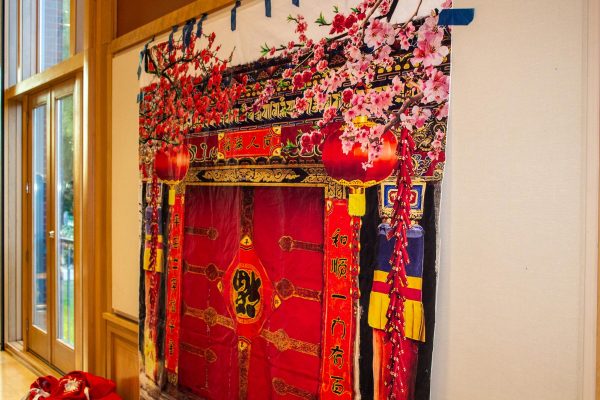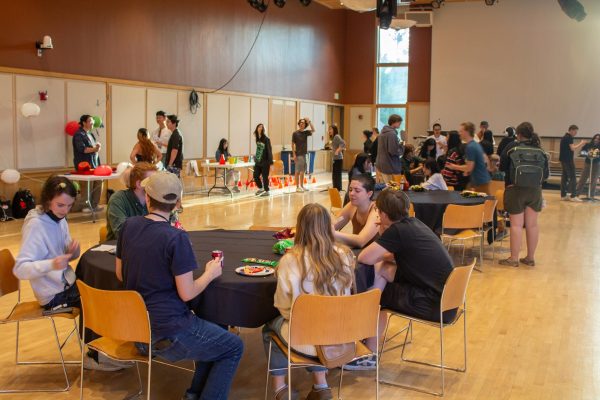
Every year over a billion people across the world celebrate the Mid-Autumn festival, and Whitman is no different. China@Whitman, in collaboration with Pan-Asian Club and Whitman Events Board (WEB), held Whitman’s own annual Mid-Autumn festival on Sept. 22. This holiday, primarily celebrated in China, Vietnam, Korea, Japan and other East Asian countries, is a traditional Chinese festival that celebrates the moon, harvest and family.
A culinary cornerstone of the Mid-Autumn Festival is mooncakes, a small cake typically filled with red bean paste or lotus flower paste. These mooncakes go beyond just delectable dough and filling. Senior Biochemistry, Biophysics and Molecular Biology major David Wang explained the cultural significance behind mooncakes.
“[The Mid-Autumn Festival] is a day that family apart from each other can feel reunion. People eat mooncakes to remember that no matter where we are, we all are sharing the same full moon, and it connects us,” Wang said.
Mooncakes were a highlight for other students who celebrated the Mid-Autumn Festival with Whitman. WEB Chair and senior English major Sasha Morgan has not previously celebrated the Mid-Autumn Festival and enjoyed immersing herself in all the activities it had to offer. Morgan observed many other students in the same situation and is proud of Whitman’s various student organizations for banding together to host the Mid-Autumn Festival.
“I got to try some different mooncake flavors, and spend time with members of the Chinese [Interest] House. My favorite part of this event was seeing how excited people were to try unfamiliar games and foods, I think it’s really cool when student-led groups are able to introduce others to new experiences,” Morgan said.
Sophomore and WEB Marketing Director Gelic Gerona found that learning about others’ cultures was her favorite part of attending the Mid-Autumn Festival. Events like this provide a crucial opportunity for students and friends to talk about their various experiences with their own cultures and families.
“I played some games that were similar to my childhood games in the Philippines, enjoyed some snacks and drinks, tried some moon cake and also talked to my East Asian friends about their culture, [discussing] how they normally celebrate it back home and [sharing] my familiarity with it,” Gerona said. “It was nice seeing [my friends] there and just having us sit at one of the tables while also celebrating a culture some of us are very familiar with and some of us who are curious and want to hear what it is about.”
Cultural festivals that are not typically celebrated in the United States hold special weight with all students who attend, whether that is connection to a home country or first exposure to aspects of cultures. Wang finds this to be the reason why it is so important to host Mid-Autumn Festival at Whitman.
“We have the Mid-Autumn Festival to show it’s not for the Chinese culture only, but also the [other cultures] that share a similar tradition,” Wang said.
Budget Manager of Pan-Asian Club Maximilian Walthers agrees, explaining that the Mid-Autmn Festival has shifted meanings over the years he has attended Whitman to an increasingly communal experience.
“The Mid-Autumn Festival did have a personal meaning to me when I was a sophomore but over time as a senior that personal meaning has moved on as I prepare to graduate. It became a space where East Asian kids can gather and enjoy Chinese culture and food,” Walthers said.
Morgan is proud that WEB is able to help support China@Whitman and other clubs to host events that are valuable to students and their identities.
“It is important for WEB to be working with other groups on campus that host events for the sake of future collaborations and to stay in the know about what the current student body is interested in,” Morgan said.
Whitman students who missed out on this year’s Mid-Autumn Festival can look forward to next year when the over 1000-year-old tradition will be celebrated on campus again.

